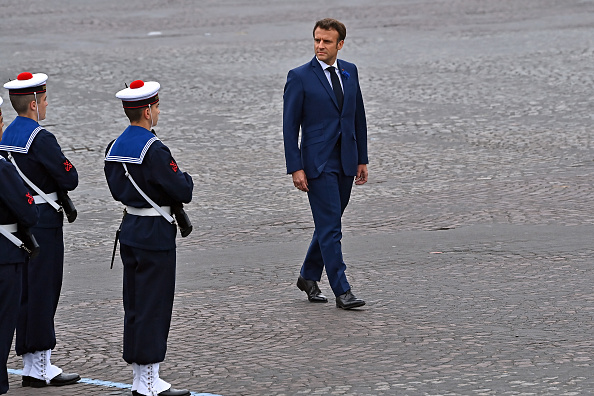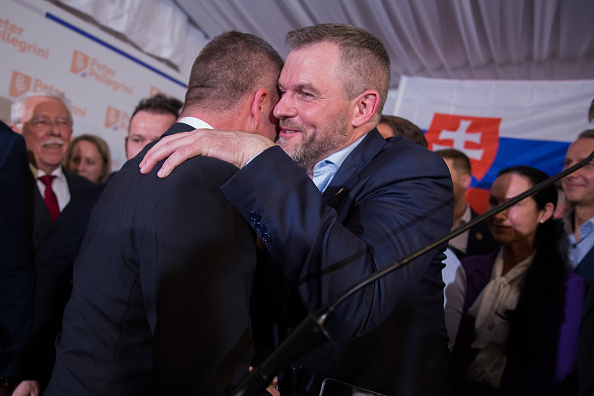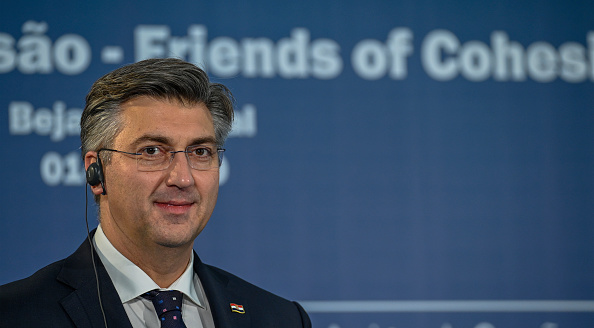A French proposal to further integrate the European Union’s capital markets drew opposition from a majority of member states, who attacked it as a Brussels power grab.
At the summit, which took place on April 17 and 18, France called for more powers to be given to the EU financial regulator Esma, based in Paris.
Macron’s administration argued that bringing together the EU’s disparate capital markets was the only way to unleash the private investment required to meet the EU’s needs in defence and the “green” transition.
It is “remarkable how quickly consensus is changing in the EU on competitiveness and industrial policy”, commented Gerard Brady, chief economist at Irish business lobby IBEC.
“If the sentiment is shared at Council, it will be important for small countries to have a clear position,” Brady added.
While some of the bloc’s bigger countries — France, Italy, Spain, the Netherlands, and Poland — have pushed for the proposal to unify Europe’s fragmented capital markets, smaller countries expressed concern that the measures would seize oversight powers their domestic governments currently hold.
Esma would then acquire oversight powers regarding “the most systemic relevant cross-border capital and financial market actors”, in the words of the draft summit conclusions, which were written before the summit began.
This was seen as unacceptable by many, with Luxembourg attempting to forge a common position for dissenting smaller countries that included Austria, Bulgaria, Croatia, Cyprus, the Czech Republic, Ireland, Latvia, Lithuania, Malta, Romania, and Slovenia.
The country’s prime minister, Luc Frieden, argued that bringing together EU financial markets had to be done in a way that avoided over-regulation and over-centralisation, even if these were things “some countries endorse”.
The International Monetary Fund has predicted the Russian economy will grow faster this year than those of the Western countries trying to isolate it. https://t.co/lc5pZucOsY
— Brussels Signal (@brusselssignal) April 17, 2024
Such a counterposition proved popular, with Ireland’s new Taoiseach (Prime Minister) Simon Harris saying that France’s proposal was “certainly not in the best interests of smaller member states”.
Harris also successfully pushed back against a proposal to harmonise corporate tax legislation, a move that could have upended his Government’s successful strategy of luring the European headquarters of US multinationals to Dublin with offers of cut-rate tax bills.
Estonia’s Prime Minister Kaja Kallas agreed with that sentiment: “We as a small country, we don’t have many competitive advantages, but having a very competitive tax system is what we have, so please don’t take it away from us.”
For the moment, EU leaders agreed to kick the can down the field somewhat, delaying a decision until the European Commission reports back stating an overhaul of financial markets is needed.
Germany’s coalition dynamics may nevertheless be what ultimately tips the balance when the proposal is next discussed. While Chancellor Olaf Scholz, a Social Democrat, supports the capital markets proposal, his Free Democratic Party coalition partners — including Finance Minister Christian Lindner — say they are against it.
Penned by former Italian prime minister Enrico Letta, this week’s French proposal was not just controversial due to its aim of handing more power to the EU.
Letta urged EU leaders to permit big companies to come together to create truly huge ones, especially in the telecoms sector.
That way, he argued, EU corporate groups could become global and compete against the major operators from the US and China.
Letta’s proposals, if adopted, would represent a remarkable change of tune for an EU whose regulators, led by Competition Commissioner Margrethe Vestager, have for years quashed super-scale merger deals in the past in the name of competitiveness.
In fact on the same day as Letta’s comments, the EU’s competition unit held an event marking its 20 years of policing mergers.
As it happened, he was not the only retired Italian politician selling his solutions to the EU’s competitiveness woes to the European Council, with former ECB head Mario Draghi also making a speech calling for “radical change”.
“This is clearly Draghi’s pitch for the European Council,” to replace Charles Michel as its president after June’s elections, commented Eurasia Group managing director Mujtaba Rahman.
Many are against the change, with some economists saying that the proposal will allow the creation of monopolies that will drive up prices and reduce choice for consumers.
In an embarrassing drafting mistake, the EU's financial markets regulator created an 18-month window where investors could buy and sell unlimited amounts of shares in so-called “dark pools," despite specifically trying to limit this practice for a decade. https://t.co/V7pw7r6miy
— Brussels Signal (@brusselssignal) April 17, 2024





